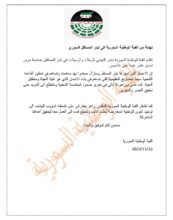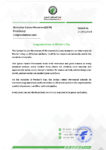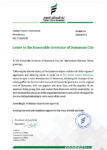Supporters.. Reality and Role

Introduction:
The Syrian revolution was a popular movement represented by the Syrian people to achieve a legitimate, non-sectarian interest. The slogans calling for change and reform were supposed to resonate positively with all components and groups of the Syrian people! However, what happened was that some members of our people, the Syrians, despised the pure path of the revolution at that time, and even declared hostility against it and fought it. These individuals have since been referred to as “the supporters.”
Reasons for Supporting the Oppressive Regime:
The reasons for certain segments of the population supporting the oppressor vary, and we cannot enumerate them all since they fall within the realm of social sciences, which are, in part, relative and rely on specific contextual analysis. However, to understand the types of supporters and their conditions, we must mention some of the reasons that we find prominent based on our experience:
- Fear: People may fear punishment or retaliation if they oppose the ruler, which is a significant and influential reason in forming the base of supporters.
- Ignorance: Some people are unaware of the true oppression they are subjected to, believing that the current situation (which led to the revolution) is the natural state of affairs for the country.
- Personal Gains: Some people benefit from the existing regime by obtaining jobs or privileges that they may lose if there is change.
- Religious or Tribal Influence: This is a significant factor in instilling loyalty to the ruler and the regime in people’s minds, even if the oppression is clear and obvious.
- The Time Factor in Gradual Change: Some people hope for a gradual change in the ruler or his regime over time, and their support is based on this premise.
- Fear of Chaos: Some people (such as traders) prefer relative stability, even under an oppressive regime, rather than risk the chaos that might result from change.
These reasons are not exhaustive, and there may be other factors that influence individuals’ stances. However, in our discussions with some supporters and observing their activity on social media, it is noticeable that a significant segment might support the continuation of the oppressive ruler or his regime, yet this support does not justify the acts of oppression taking place in the country!
Assad’s Supporters:
We have discussed the reasons for supporting an oppressive ruler in general, but what about the support of some Syrians for Bashar al-Assad and his regime in particular?
Reasons for Support:
- Fear and Security: Some people might support Assad out of fear of retaliation or the various punishments they might face if they oppose him, or because they see his regime as a guarantee of safety and stability in contrast to the chaos that pervades the country.
- Personal Interests: There are those who have benefited or continue to benefit materially or politically from their direct or indirect support of the Syrian regime, whether through government positions, economic privileges, or similar gains.
- Propaganda and Media: The Syrian regime uses media and propaganda to portray itself as the protector of the nation against internal and external conspiracies and terrorism, influencing the opinions of a segment of society.
- Sectarian Loyalty: Some sectarian groups view Assad as a protector of their interests against perceived sectarian threats, while certain religious sects and schools preach the necessity of obeying the ruler, even if he is unjust, violates rights, and plunders wealth.
- Ignorance, Misinformation, and Lack of Information: Some people might not be aware of the extent of the oppression and violations due to a lack of information or because they are misled by systematic media deception, especially among the younger generations.
- Post-2011 Generation: Those who were not fortunate enough to live through the decades of Assad’s rule, either under the father or the son, and were born just before or after 2011, having been influenced by the conspiracy theories and blind support slogans that the regime has consistently promoted in schools and universities.
Types of Syrian Supporters:
The types of Assad supporters and his regime are varied and overlapping, but in general, they can be classified into the following categories:
- Direct Beneficiaries: These are individuals who gain direct material or authoritative benefits from the regime, such as ministers, those close to him, and people with influence, followed by those in the closest surrounding circles, and others.
- The Fearful: Those who fear the brutality and retribution of Assad’s regime, supporting him in form rather than substance, out of fear for themselves, their families, and their properties.
- The Deceived: Those who believe the propaganda spread by the regime and think that it is working in their interest, even though it exploits their needs and emotions.
- Believers in the Ruling Ideology: There may be those who believe in the regime’s ideology, even if it is unjust, and consider supporting it a religious or national duty, on the basis that it represents the state, and the state is always right.
- Indirect Beneficiaries: Those who benefit indirectly from the unjust regime, such as traders, industrialists, and artists, who exploit the circumstances to increase their profits and secure better conditions for themselves.
- These classifications are not exclusive, and one person may fall under more than one category mentioned.
- How to Deal with Supporters:
Undoubtedly, the shabiha, violent criminals, and those who found an outlet for their illnesses in the regime’s violence, as well as the corrupt, thieves, and profiteers, cannot be relied upon. With the fall of the regime, they will fall and be exposed, and there is no alternative but that for them.
As for those who are fearful, deceived, or who superficially support Assad’s regime while rejecting injustice in essence, they must be cautiously distinguished from the first group. They may be our uncles, aunts, neighbors, or childhood friends, but their circumstances have not allowed them to express their opinion or escape from Assad’s fold to declare their stance.
So, there are two categories of supporters as it appears:
A criminal and murderous category that cannot be dealt with without toppling the pillar they lean on, which is the Assad regime and all its elements.
A category that rejects injustice and chooses to stand with the regime for any given reason.
While the first category is rigid and cannot be dealt with, the second is important from a national and ethical perspective. In fact, communication with them can be beneficial to leverage their position for national or ethical interests, both present and future. We see that dealing with them serves several purposes, including:
- Mediation to lift some personal injustices within Syria.
- Assistance in administrative matters like obtaining documents, passports, and similar issues.
- Protecting properties that the regime tries to seize by securing them in the hands of those who reject injustice but are aligned with the regime, at least in appearance.
- Agreeing on prosecuting criminals and corrupt individuals, making them a point of national convergence between us and supporters from the second category.
- Working towards a future for the next generation that is more viable.
- Agreeing with these supporters on a national goal, which is to reach a comprehensive, real political solution and build a just national state.
- Leveraging their role during election phases to prevent the corrupt from exploiting elections to rise to power.
Thus, from a national and rational perspective, we see that supporters are not all the same, and we see the potential to benefit from them for national and ethical purposes, which can be built upon in the current and future situation.
Accordingly, we recommend not alienating the second category of supporters while confronting the first, but rather working to increase and strengthen them as a revolutionary and national goal that contributes to breaking the regime’s internal stick and destroying its corrupt structure. This is a positive point that may be useful in the structure of the Syrian conflict and for the benefit of the Syrian people themselves.
Dr. Zaher Ihssan Baadarani
Presidency office
Article
Syrian Future Movement (SFM)






